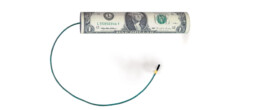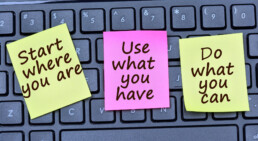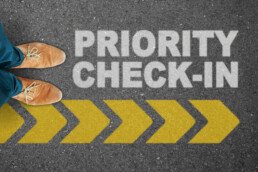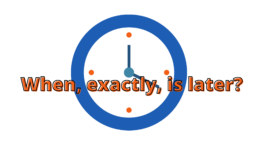Can You Freeze Time?
Have you ever started to leave the house and remember something you want to do first? It doesn’t matter that you are leaving the house so that you will be on time for your appointment, you just have to get this one thing (or two, or three) done.
For some reason, your brain lets you believe that this 5-minute task will not make you 5 minutes late because time will stop for you. And when the 5 minutes turn into 10, no big deal, time isn’t really passing, right? So, it is really surprising that you end up being late to your appointment.
I am sorry to report that real life has not caught up with science fiction and/or fantasy, time just keeps on ticking away. I have to tell you that “no time at all” is a lie your brain is telling you.
 How do you keep track of reality?
How do you keep track of reality?
It helps to have lots of clocks. Have a clock in every room. Analog clocks are more effective as you can see time passing. Look at the clocks frequently. Additionally, for those tasks you only seem to remember at the last minute, write a note. Keep a sticky pad and pen by the door so that you can place the note where you’re sure to see it when you return. Or send yourself a text or voice mail – you can even do that in transit.
Time cushions also help, especially if you include them in your calendar. Cushions give you room for the time an appointment takes that’s not actually appointment time – like travel. I’ve known many people who leave the house when the appointment starts. So, if you need to be somewhere at, say 2 p.m. and travel time in 20 minutes, then the appointment starts (when you leave) at 1:40. I even know a couple of people who have to include the time to get ready (say, getting dressed) in their appointment schedule, otherwise, they wouldn’t get out of bed until the time of their first appointment!
- Sydney Metrick
The Bang for Your Buck
Are you overwhelmed? Do you say yes to too many things, have several projects going at once? Or do you have one project that needs attention, but you don’t know where to begin, or how?
If you have too many things to do, the next question is: What gives you the biggest bang for your buck? When you look at the list of things you’ve said yes to, if everything has the same priority and deadline, think about which project will give you the greatest return on your time and energy investment. And in this case, return can be financial or emotional. If you cannot get rid of anything on the list, order it in terms of biggest bang. You might also want to consider increasing your use of one little word: NO.
If starting the (or one of) project is the problem, ask yourself this: Does it really matter? Starting is the key. Think about the goal and all the factors that lead to the goal. Choose the one that’s most interesting or easiest – the one that gives you the biggest bang. Then build on that.
I recently wrote a book. The contents unfolded in a way that seemed to make sense to me. However, my editor ended up rearranging much of what I had written, and that was okay – that’s why I have an editor. For me, the bang was getting all the thoughts out. You can be your own editor once you get everything out of your head.
-Sydney Metrick
There is No “Right Time” Just Time and What You Do with It
“Congratulations, today is your day.” writes Dr. Seuss in the first line of “Oh, the Places You’ll Go.”
I know procrastinating can be so persuasive yet putting things off to a better time can result in: guilt, anxiety, a poor job, never getting the “thing” accomplished, or forgetting it even existed.
There are so many ways to procrastinate. Do any of these sound familiar:
- I’m tired,
- I’m hungry,
- I’m not in the mood,
- I just want to finish this chapter.
Or, maybe you have better sounding excuses like:
- I have other things to do,
- This is low on my priority list,
- My child broke a bone.
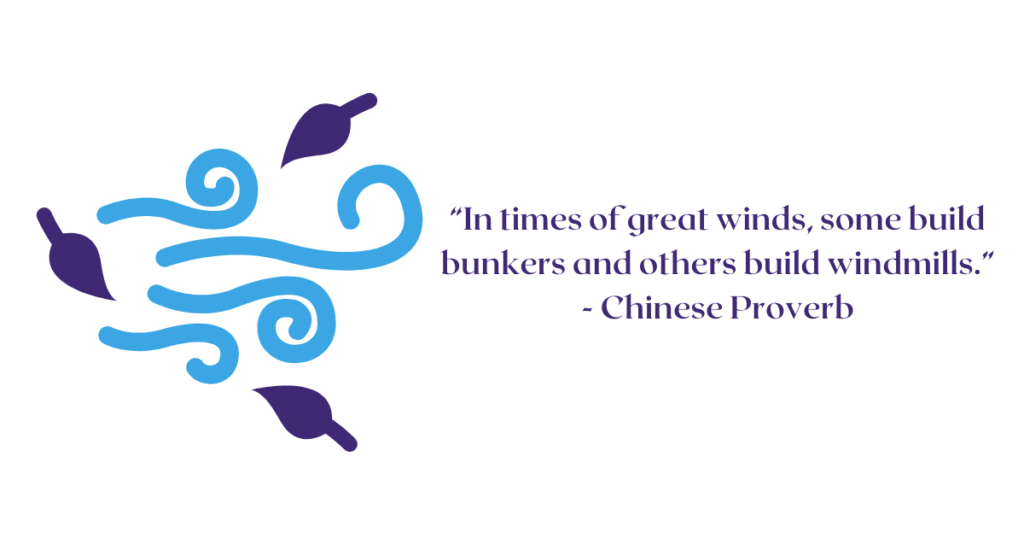
Then there are the excuses we don’t like to say out loud:
- I don’t know how,
- I’m scared,
- It’s too hard,
- I don’t want to.
There’s a Chinese proverb that says, “in times of great winds, some build bunkers and others build windmills.” Bunkers can be good – they provide protection. Windmills, on the other hand, provide opportunity. The question becomes, when you are in the next windstorm, are you going to try to keep the bad – and good – out, or are you going to create an opportunity?
So how will you approach 2022? Are you looking for any improvements? Think Goals rather than resolutions. Have you plans? Start dates? Support?
Let me know if I can be of assistance. 😊
- Sydney Metrick
If Not Now, When?
Are you familiar with Dr. Seuss’s, “The waiting place?”
“Waiting for a train to go or a bus to come, or a plane to go or the mail to come,
Or the snow to snow or waiting for a Yes or a No, or waiting for their hair to grow.
Everyone is just waiting.”
Are you waiting for the time to be “right” to start a task or a project, especially a big project or a less than exciting task? The truth is when a project feels too big to know where to start, or a task is tedious, the time will only be right when you actually decide to start.
There are many reasons for procrastination and only one solution.
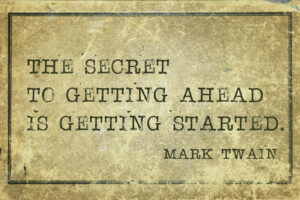 Starting.
Starting.
Fear not. Starting is not the same as finishing, and knowing the best place to start is not necessary. Starting just means taking one small step…then another.
Sometimes a project or task can be easier with chunking. That means breaking it into either time chunks, e.g. “I will spend ten minutes on this,” or chunks of items or work. For example, just go through one pile, or writing one page.
If “now” really isn’t the ideal time to start, then schedule a “now” and stick to it!
You may be familiar with the Chinese proverb that says: “The best time to plant a tree was 20 years ago. The second-best time is now.” So, forget about waiting.
-Sydney Metrick
On a Scale of One to Ten
Effective time management is based on several things. One of these is prioritizing.
When you are at a decision point—deciding whether to do something—a good question is “on a scale of one to ten how important is this right now?” Due to the impulsivity those of you with ADHD experience, right now seems ideal for whatever has caught your attention. That is until later when you realize something really important got forgotten or pushed back.
When you invest time in a lower priority, but maybe really interesting action, you’re withdrawing time from something that maybe had a closer due date, or start date, or commitment.
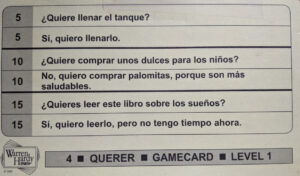 For example: I’ve been studying Spanish for quite a while. I have numerous means for learning which include flash cards and short video lessons. I see the flash cards in my peripheral vision as I type, but I can also see my Kindle which holds the interesting story I’m in the middle of reading. It’s easy for me to tell myself I put in my study time by reading a letter in Spanish without using Google translate. But that’s really an excuse. Spanish is necessary for me to communicate with the Mexican friends, neighbors, and business people I encounter daily. Reading a novel…well.
For example: I’ve been studying Spanish for quite a while. I have numerous means for learning which include flash cards and short video lessons. I see the flash cards in my peripheral vision as I type, but I can also see my Kindle which holds the interesting story I’m in the middle of reading. It’s easy for me to tell myself I put in my study time by reading a letter in Spanish without using Google translate. But that’s really an excuse. Spanish is necessary for me to communicate with the Mexican friends, neighbors, and business people I encounter daily. Reading a novel…well.
The two things that work best for me involving other people. I speak Spanish with whoever has the patience to listen, and often get small corrections. Most important is the Spanish class I have every Sunday at 1 p.m. Showing up for others seems to be easier than showing up for oneself.
When Later Never Arrives
Does this ever happen to you? Maybe you drop a sock out of your basket of clean laundry as you’re taking the basket to the bedroom and you think, “I’ll get that later.” Or perhaps you put a dish in the sink and tell yourself you’ll wash it later. It could be you apply later to paying a bill, returning a phone call, or filing papers.
The question in many of these examples is, what would make it easier later? (Other than not having your hands full with the laundry basket.)
I used to teach a class called “Getting Organized for Non-Linear Thinkers.” Some of you may have taken the class. To exemplify the “later” problem, I’d drop a pen and say, “I’ll pick that up later.” As it would take almost no time to bend over and pick it up right then, and I certainly had no plans to be sitting on the floor closer to the pen in the future, the question becomes: When would later actually be?
 The problem with “later” is that it has no real meaning. It can be after you put down the laundry, 30 minutes before the deadline, or never. So, at those decision points ask yourself, “is later really the better choice?” It could be. You have constraints on your time and resources, not everything can be done right now.
The problem with “later” is that it has no real meaning. It can be after you put down the laundry, 30 minutes before the deadline, or never. So, at those decision points ask yourself, “is later really the better choice?” It could be. You have constraints on your time and resources, not everything can be done right now.
However, if later is better, schedule the task to define when later will actually arrive.
-Sydney Metrick
How Urgent is it?
Are you more effective at getting things done when there’s a sense of urgency? Does the day before a deadline provide the impetus that seemed to be lacking in the previous days?
 If you wait until the last minute you may actually be more motivated to perform the task than if you’d started earlier on. In that final day or moments, your brain is suddenly kick-started. Urgency wakes up your brain.
If you wait until the last minute you may actually be more motivated to perform the task than if you’d started earlier on. In that final day or moments, your brain is suddenly kick-started. Urgency wakes up your brain.
On the other hand, when you have a task that you find really interesting, rather than just required, you’re way more likely to address it in a timely fashion. Interesting things also wake up your brain. Think “I get to” versus “I have to” and note the difference in how you feel.
If urgency is your habitual way of responding you might also find yourself feeling anxious, overwhelmed, and wiped out. Responding to emergencies and crises can be exhausting.
So, what can you do to prevent being in crisis mode? How do you take care of important things in a timely fashion? Preventing frequent crises means first learning from them. That way you can plan and prepare. “Yes but …,” you may be thinking. What about that lethargic brain? Here’s where mini-deadlines can save the day.
Break up your project or whatever it is that needs doing into small bits. Maybe it’s writing just one page each day for a presentation that’s two weeks away, or going through just one box a day to clear your storage space. Or it could be a time chunk, like scheduling just 30 minutes for a task each day. Give yourself a daily deadline.
Because a deadline doesn’t always count without accountability, have someone ask for status checks regularly.
The finished project is the sum of the bits, so think about how many bits you’ll need in all so you can determine your start date.
Need help? Here I am.
-Sydney Metrick
Are You Time Blind?
How far away is later? Especially to those with ADHD, later is somewhere out there. Maybe later actually has a time and date, but remembering what that time and date is, or even what today is, may be somewhat of a challenge.
Do you have any of these issues? Finding it difficult to estimate how long something might take, or lack of awareness of how much time has passed and suddenly you’re “out of time”?
It’s possible that you have a short time horizon. Think about how a child will ask, “is it tomorrow yet,” or similar questions along those lines. As we grow up typically our time horizon expands and we can make future plans…unless you are time blind.
Creating timelines, especially visual ones, can be really helpful. A simple timeline is a map. You know where you are and you have an idea of where you want to go. Timelines are common, and can look intimidating, in project management. The trick is to be able to break things down into manageable bits. It also helps to understand the order of those bits; let’s say you want to take a bath, you fill the tub, bathe, and then empty the tub. Fill, empty, then bathe doesn’t work.
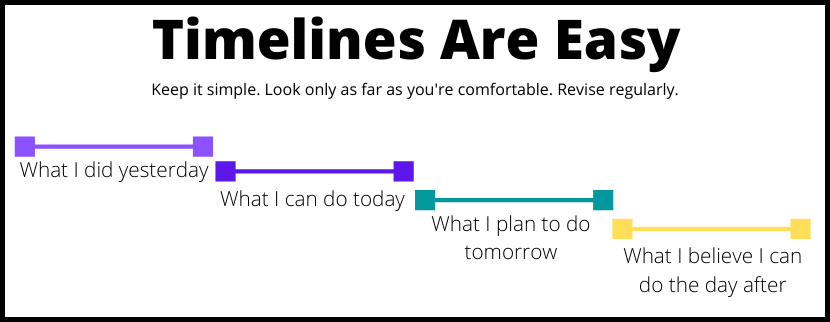
For example, when my husband and I drove down from the San Francisco Bay area to our current home outside of Guadalajara, Mexico, I first had to look up the best route and how many miles we’d be driving. Then I calculated how many miles we could manage each day including rest stops and a little padding for emergencies. Next, I looked for dog-friendly motels along our route and made reservations.
Each day included some recalculation depending on various unknown factors, but the day by day planning and review made our trip a success.
If you can’t see far into the future, think about what you did yesterday and can do today. You can then project forward day by day and week by week, refining with each review.
Keep Track of Your Amazing Ideas and Precious Time
 Do any of these sound familiar?
Do any of these sound familiar?
- You have a great idea in the shower and then forget it by the time you’re dressed.
- A task you thought might take an hour actually takes three.
- You sometimes get so caught up in one thing that you’re late for something else.
- Prioritizing your schedule to address every one of your “To Do’s” feels impossible.
I offer a wide array of life management tips: from budgeting your time like you do your money to a creating “Things to Not Do” list. However, tips can only get you so far – sometimes you need some extra tools in the toolbox as well.
Here are some simple and easy-to-use tools that I’ve already tried out and can recommend:

- Many of us do our best thinking in the shower, the problem is holding onto those ideas until you can act on them. Enter AquaNotes (www.myaquanotes.com), waterproof notepads that allow you to hold onto those ideas rather than rinsing them away with the shampoo. The 40 sheet, refillable pad suctions comes with a pencil and suction cups to hold them to your shower wall.
- Time Timer (www.timetimer.com) has a line of timers, watches, and applications that help you stay on track and on time.
- Planner Pads (www.plannerpads.com) offer an easy-to-use system that helps you organize, prioritize, and schedule in ways that make sense.
Even the websites are user-friendly. Check them out. Let me know if you start using any of them and tell me about your experience.
I’m also interested in knowing what other tools you recommend. Please let me know what works – and what doesn’t work – for you.
-Sydney Metrick
Nudges
Are you familiar with “nudge theory?” In a recent newsletter from a colleague, nudge theory is described as “a way of encouraging people to do what’s in their best interest, even when other perfectly human tendencies—such as the urge to procrastinate—are conspiring against them.”
That newsletter nudged me into to writing this and sharing some of the hacks people with ADHD or other non-linear thinkers can use as nudges.
One of the best nudges is a timer. If you have a tendency to get lost in a task, setting a timer for how much time you realistically have to spend on it helps you be aware that “time is up.”

Having a staging area by the door is a way to nudge yourself to actually take with you the things you’ll need when you're out. We have a key rack a few feet from the door. It makes it easy to hang the keys upon arriving and know where they are when we’re ready to leave.
I put a sticker on the first Monday of every month of my wall calendar. It reminds me to give our dog a flea treatment.
And then there’s Nudgemail, an easy to use reminder service that sends email prompts. This is an all-around life saver especially if you’re a busy person.
An accountability partner can be a great nudge. You each share something you want to accomplish or goal you want to attain, and you get to regularly ask each other how it’s going. (Sometimes receiving nudges is easier when you’re also giving them.)
I’m also a fan of the positive reminder. The brain is much more accepting of positive language than negative – so the next time you’re writing yourself to “Don’t forget …” try “Remember the …” instead.
To-Do, or Not To-Do
Is your To-Do list the bane of your existence? Or is it an effective time management tool? Those of us list-makers find that writing things down can alleviate possible memory issues, such as going to the market and leaving without the most important item, or packing for a trip to a beachside resort and discovering you forgot to pack a swim suit.
But some people personify the To-Do list and hear it relentlessly nagging with “you should…” or “when are you going to...” If you have a list with countless items and you don’t begin because you don’t know where to begin, you are likely to have thoughts like that run through your head.
Why not find ways to effectively manage your to do list?
- Categorize items
- Prioritize items in each category according to things like due dates
- Estimate roughly how much time, and when you can realistically attend to the high priority tasks
- Schedule them in your calendar as appointments
If you still feel that your To-Do list is more like the Grim Reaper constantly hovering over you than a helpful reminder of what you’d like to get done, how about a Not-To-Do list?
In her article “To-Do Lists are Great but Do-Not-Do lists Might Be Even Better for You,” Caroline Liu argues that a Do Not Do list lets you dump (or limit) the things that are keeping you from what’s really important. This list makes you look at all the things that you do do in your day and say, “this is not worthy of my time, I’m not going to do it any more.”
The key thing is to NOT. DO. THEM. ANY. MORE.
Busy Doing What?
Nobody is too busy; it’s just a matter of priorities. Laura Vanderkam has an eye-opening TED talk on this subject.
What if you could be in charge of designing your days by creating a time budget? You know how to budget your money, right? If you have a regular paycheck and you’re aware of your monthly income, presumably, you know how much goes to rent/mortgage, utilities, food, transportation, etc., and what might remain for saving or random spending. And if you don’t have a regular paycheck, then you really have to budget to stay on top of things.
How about applying the same principles to your calendar? Realistically, how much time can you/must you devote to work? To health? To taking care of your home? To your family, friends, community? You can use your calendar to block time for your priorities in each area. Some things will be high priority items, some medium, and some low. You want to commit to the high priorities as much as is realistically possible. It also makes sense to have both cushions and flexibility. For example, include travel times for appointments, and padding for things that run longer than intended.
Sometimes the best laid plans…, so when that happens consider rescheduling as an option. When something unexpected happens – maybe you get a flat tire on the way to your workout class – look for a place later in the week when you can get a different workout in, and make sure to put it in your calendar.
Of course, a portion of your time needs to be spent creating your time budget and updating it daily. Schedule that too. And pay attention to how long things really take so that you can improve your time budgeting skills.
Three Tips for Managing Holiday Madness
Have you noticed that the winter holidays are starting earlier each year?
Even as days grow shorter and colder, calendars are filling up with all kinds of festive events and obligations. While our wallets aren’t getting any fatter, marketing for the “big” winter holidays is inescapable. We’re bombarded with ads and invitations to buy, buy, BUY. A whirlwind of parties, shopping, eating, and visiting families engulfs us. It all takes an emotional toll even as they allege good times.
Most creatures practice some form of hibernation during the winter months. In contradiction to nature, we humans rev up the action. You can protect yourself from the physical and emotional stress by following these simple steps:
- Learn to say no. It’s not mandatory to:
- do everything (Try, “Oh, jeez. Looks like I’m already committed then.”)
- see everyone (The above idea can work on this one, too.)
- eat whatever is offered (Choose what you really, really want and go for small amounts.)
- If you’re experiencing the anniversary of a loss in November or December, give yourself time to grieve.
- Try going a week without the newspaper, television, or social media... okay a day. A vacation from advertising and news can make a big difference in how you feel.
But if, for whatever reason, the season gets you down…don’t be afraid to see a professional. Help is always available. If I can’t help I’ll do my best to provide qualified referrals.
Three Tips to Avoid Late Fees
Do you ever procrastinate on paying bills? Solutions exist.
The List
First make a list of all your monthly bills and their general due dates. Note that some may be due weekly, while others are monthly or quarterly. Some bills will usually have due dates early in the month while others will be due later in the month. Organize your bills in the order that they need to be paid.
Pay Date versus Due Date
This is a place where lots of people screw up. Whether you pay electronically or send in a check, there is a time span between when the payment is made and when it arrives. If you pay online, your bank will usually have a note as to how many days it takes for the money to be transferred. If you put a check in the mail it could be anywhere from two days to who knows when. Scheduling pay dates a week before due dates is generally a safe bet.
Alert, Alert
If you’re income varies, have you noticed that institutions don’t like it when you try to pay a bill with money that doesn’t exist? Alerts can help with this. With online banking you can set alerts to send you an email with your balance daily or weekly. They can also let you know when a check posts, when you have a low balance threshold, and more. This is great information whether you are paying all your bills yourself or using automatic deductions to handle the job.
Finally, tips are only good ideas without implementation. So schedule a chunk of time in your calendar each week to be used for bill pay. Make it an appointment. If something that feels more urgent comes up, make sure to reschedule to a time within 24 hours.
Time Will Tell - Tools that Organize your Thoughts & Time
Do any of these sound familiar?
- You have a great idea in the shower and then forget it by the time you’re dressed.
- A task you thought might take an hour actually takes three.
- You sometimes get so caught up in one thing that you’re late for something else.
- Prioritizing your schedule to address all your To Do’s feels impossible.
Solutions exist. I like things to be simple and easy to use so these three tools have passed muster. They are Aqua Notes, Time Timer, and Planner Pads.
www.myaquanotes.com says, “If you find that some of your best ideas and insights are generated in the tranquility and solitude of the shower...then AquaNotes® is for you! These waterproof notepads help you capture and preserve your ideas before they're forgotten!” The 40 sheet, refillable pad suctions to your shower wall and even comes with matching pen.
www.timetimer.com has a line of timers, watches, and applications that helps you stay on track. Set the amount of time you want to spend on a specific task and have a bright visual of the time gradually elapsing so you know when you’re getting to the finish.
www.plannerpads.com has both paper and electronic easy-to-use systems that help you organize, prioritize, and schedule in ways that make sense.
Even the websites are user friendly. Check them out. Let me know if you start using any of them and tell me about your experience.
The Last Newsletter You’ll Ever Read
Okay, this is not a promise. It’s more of a thought exercise.
What motivates you to read newsletters?
Do you look forward to useful tips, new information, special offers, upcoming events?
Do you open and read all the newsletters that arrive?
Do you anticipate the arrival of any of them?
Do you delete any unread?
I don’t know your situation, but I receive newsletters from people I barely know as well as from colleagues. Reading takes time and for most of us, our time is valuable.
There are three newsletters I read every time. Invariably they contain information I can use. A few others are interesting to me on occasion and I briefly scan them. And for the rest…there is a link at the bottom of every newsletter that lets you “unsubscribe.” (I hope I’m not shooting myself in the foot here).
So if time management is a concern for you, deciding how you can best use your time is important. If you are already using your calendar and focusing on your priorities (some of you know these are your “big rocks”) when and where do activities like reading newsletters fit for you? Deciding what’s important is important. If the information or education that arrives in a newsletter could have value, great. Look at your schedule and see when you have some time you can set aside for reading.
My intention is to provide a useful tip to you every month, along with a notice or two. If there’s something you’d like, please let me know. My goals is to give you information and tools you can implement.
Newsletter tips not enough? Contact me for that complimentary coaching session I offer.


